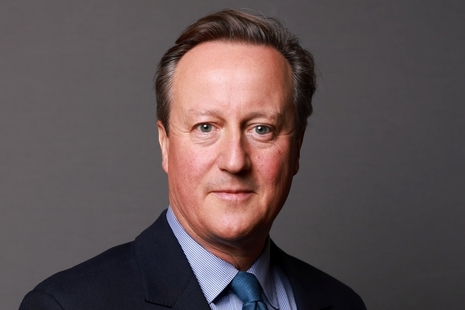The Rt Hon Lord Cameron
Conservative 2010 to 2016
David Cameron served as Prime Minister from 2010 to 2016, leading Britain’s first coalition government in nearly 70 years and, at the 2015 General Election, forming the first majority Conservative government in the UK for almost two decades.

Born
9 October 1966, London
Dates in office
2010 to 2016
Political party
Conservative
Major acts
Fixed Term Parliaments Act 2010 Academies Act 2010 Education Act 2011 Marriage (Same Sex Couples) Act 2013 Succession to the Crown Act 2013
Interesting facts
David Cameron was the youngest Prime Minister since Lord Liverpool in 1812. David Cameron is Chairman of Patrons at National Citizen Service, the UK’s flagship youth development programme that he personally founded while leader of the opposition. He is also President of Alzheimer’s Research UK and, together with former US Secretary of State, John Kerry, co-chairs Pew Bertarelli Ocean Ambassadors. He also sits on the Board of the ONE campaign.
Biography
David Cameron was educated at Eton College and Brasenose College, Oxford, studying politics, philosophy and economics. After graduating he joined the Conservative research department where he worked for Prime Minister Margaret Thatcher and her successor John Major. He was later appointed a special adviser in government, first at the Treasury and then at the Home Office, before joining the media company Carlton Communications, where he worked for seven years, serving on the management board.
He became MP for Witney in 2001 and within four years he was elected as Conservative Party Leader seeking to remodel the Conservative party with a new and distinct agenda.
Following the 2010 general election, David Cameron became Prime Minister on 11 May 2010, forming a coalition government between the Conservative Party and the Liberal Democrats.
The 2010 election occurred during the ongoing aftermath of the global financial crisis. In response, the coalition government embarked on a programme of public spending restraint, which successfully reduced the budget deficit, whilst at the same time seeking to stimulate job creation and economic growth. David Cameron’s government introduced new policies such as the National Living Wage and conducted reforms in education, welfare and health.
David Cameron championed environmental issues with the aim of delivering the greenest ever government. Significant contributions to this agenda included the creation of the world’s first Green Investment Bank and ensuring the UK played a leading role in the Paris agreement on climate change.
Internationally, David Cameron developed a foreign policy that responded to the new challenges of the Arab spring and also evolving challenges from various state and non-state actors, ensuring that Britain played a full role in the global fight against Daesh. In 2011, the UK also took a lead in the international intervention in Libya. David Cameron made it a priority for Britain to build strong partnerships with India and China. Throughout, he championed Britain’s special relationship with the United States, working closely with President Barack Obama.
Following the UK hosting the successful London 2012 Olympic and Paralympic Games, he chaired the 2013 G8 Summit in Northern Ireland, where he highlighted the global need for fair taxes, increased transparency and open trade. He later helped rewrite the global goals on aid and sustainable development. Under his leadership, the UK committed to the NATO 2% defence spending target and also meeting the UN target of 0.7% aid and development spending.
During his time as Prime Minister, his government led the way on the equalities agenda by passing the UK’s same sex marriage act. He also held three national referendums. The first in 2011, known as the alternative vote referendum, asked whether the current existing method of electing MPs should remain for future general elections. The second referendum held in 2014 asked whether Scotland should be an independent country. He campaigned for Scotland to remain part of the UK.
For the third referendum, on Britain’s relationship with the European Union (EU), David Cameron led the campaign for the UK to remain in the EU. In June 2016, the British people voted to leave the EU and following this result, he resigned as Prime Minister and leader of the Conservative Party, leaving 10 Downing Street on 13 July 2016. In September 2016, he resigned as a Member of Parliament.